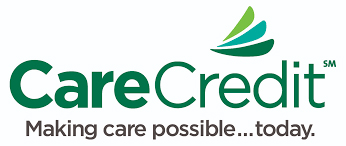Also Serving Patients in Everett & Bellingham
Is my surgeon qualified?
Jonathan Grant, MD, FACS has many years of experience as a facial plastic surgeon and is well-respected in the field. He is board-certified by the American Board of Facial Plastic & Reconstructive Surgery and the American Board of Otolaryngology. He received his medical degree from the Baylor College of Medicine in Houston and completed his residency in Otolaryngology, Head and Neck Surgery at the Medical College of Wisconsin in Milwaukee. He also completed a fellowship in facial plastic and reconstructive surgery at the University of Missouri-Springfield and Columbia, Missouri.
Is facial plastic surgery safe?
In the hands of an experienced surgeon, facial plastic surgery is very safe. It has been performed successfully on hundreds of thousands of patients for decades. It is not just performed on people who wish to improve their appearance, but also on patients who have suffered an injury, have a congenital defect, or experienced cancer surgery. The field of plastic surgery has provided a new lease on life for countless individuals.
Will I still look like “me” after facial plastic surgery?
Dr. Grant is dedicated to providing natural-looking results, so you will still look like you after your surgery. It will just be an improved and perhaps more refreshed-looking you.
When can I return to work?
This varies depending on the kind of surgery you receive. Most patients are able to return to work in 7-14 days. Please refer to the page that discusses the specific procedure that interests you. On that page, you will find information about the length of time required for recovery.
How do I prepare for surgery?
We will give you full instructions for surgery preparation. If you smoke or drink, you need to discuss this with Dr. Grant, as smoking can cause problems with blood flow and can also slow healing. You will need to cease taking aspirin, including ibuprofen, blood thinners, and anti-inflammatory medications two weeks prior to surgery because these drugs can promote excessive bleeding. We recommend that you avoid foods high in salt content for at least a week before surgery and arrive for your procedure well-rested. We have a list of other supplements to avoid, as well to minimize your risk for prolonged bruising, swelling, and overall recovery after your procedure.
Do I go home after facial plastic surgery?
Most patients can go home shortly after facial plastic surgery. You will need to spend a short time in our recovery room, and you will need someone to drive you home. Even if your surgery is performed using a local anesthetic and IV sedation, you will feel drowsy for a period of time. Rarely is a hospital stay required.
How long will bruising and swelling last?
This varies depending upon your specific surgery. Bruising resolves faster than swelling and is typically gone for most patients after no more than three weeks and usually sooner than that. Swelling gradually subsides over the weeks and months following surgery, so please be patient. You may not be able to see the final results of your surgery for a substantial period of time. It will be worth the wait!
When can I exercise?
This also varies depending upon your specific surgery. Most patients can exercise within 2-4 weeks. For nose surgery, any exercise or sports with risk for facial injury should be avoided for 6 weeks if possible.
How much will facial plastic surgery cost?
Cost varies considerably, as it is procedure-dependent. You will be given specific quotes for your anticipated fees prior to scheduling for all cosmetic procedures. If your procedure is covered by insurance you may still have an out of pocket expense depending upon your health insurance policy. Financing options are available and will be discussed with you in your consultation, if desired.
How will I know which treatment is best for me?
After Dr. Grant has examined you and heard from you about what you would like to address, he can provide treatment recommendations. He will explain the different options and their anticipated benefits so that you can make a fully informed decision. In many cases, we can use the Canfield Mirror imaging software to simulate anticipated changes from surgery. This will help you feel confident about your choice of procedure.







